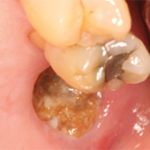The association between reduced mortality & bisphosphonate use seems most persuasive in the case of zoledronic acid, a medication that has demonstrated significant prevention rates for fragility fractures.
View 2
Bisphosphonate Use Is Associated with a Reduction in CV-Related Mortality
Starting from the premise that bisphosphonates may be associated with a reduction in all-cause mortality, to what is this survival benefit attributed? A compelling question: What proportion of post-fragility fracture mortality is related directly to the fracture itself vs. what portion is due to comorbidities, preexisting conditions and frailty?
Several studies have sought to answer this question.17,18 It may be that the decreased risk in all-cause mortality is due to more than secondary fracture prevention alone.
An analysis of HORIZON-RFT data by Colón-Emeric et al. sought to answer the above question.12 This study examined cause of death among the 242 subjects whose cause of death was captured by the HORIZON-RFT. The cumulative mortality rates were 13.3% in the placebo group and 9.6% in the zoledronic acid group (P=0.01). After adjusting for baseline risk and new clinical fractures, the study authors concluded that only 8% of the mortality benefit associated with zoledronic acid use was due to a reduction in secondary fractures, thereby invoking the presence of an additional mediator to explain the reduction in all-cause mortality.1,12
A trend was seen toward increased incidence of cardiac death among patients in the placebo group compared with those in the zoledronic acid group.1,12 Two of the study limitations were that baseline characteristics and comorbidities were investigator reported and could not be confirmed, and that cause of death could not be adjudicated for a large number of subjects.12
Several other studies also found a protective benefit of bisphosphonate use for cardiovascular disease. A retrospective cohort study using data pooled from three North American risedronate osteoporosis trials demonstrated a trend toward lower CV-related mortality in the risedronate groups compared with placebo groups.19
A Danish prospective cohort study using propensity score matching observed a 33% reduction in any CV event among patients taking oral bisphosphonates compared with those who were not.11 Adjusted analyses for baseline bone mineral density did not materially alter results, suggesting CV protection may be independent of bone density. Importantly, registry data in this study did not include information on lifestyle factors, such as smoking and alcohol use.
Other studies have found a similar association between bisphosphonate use and decreased risk of CV-related morbidity and mortality; however, no clear mechanism has been identified. One hypothesis is that the survival benefit may be due to decreased risk of myocardial infarction (MI) among patients on bisphosphonate therapy. Several observational studies have demonstrated this association, including three studies we discuss in more detail below.6,13,14,20
Wolfe et al. conducted a prospective cohort study among patients with rheumatoid arthritis (RA), a population enriched for CV disease and osteoporosis, utilizing data from the National Data Bank for Rheumatic Diseases.6 Patients with RA on bisphosphonate therapy had a decreased risk of MI compared with those who were not.6
Kang et al. conducted a matched cohort analysis of 1,548 subjects who received alendronate for fragility fractures compared with 4,644 subjects who did not receive bisphosphonate therapy for fracture.20 During a follow-up time of two years, fewer MIs occurred among patients on bisphosphonates compared to those who were not on bisphosphonates.20
Lastly, Sing et al. observed that alendronate use was associated with reduced risk of CV mortality and incident MI at one year.13 This risk reduction decreased over time, but was still evident at 10 years of follow-up.13 This data supports reduced risk of CV disease as a potential mechanism of action for mortality reduction.


